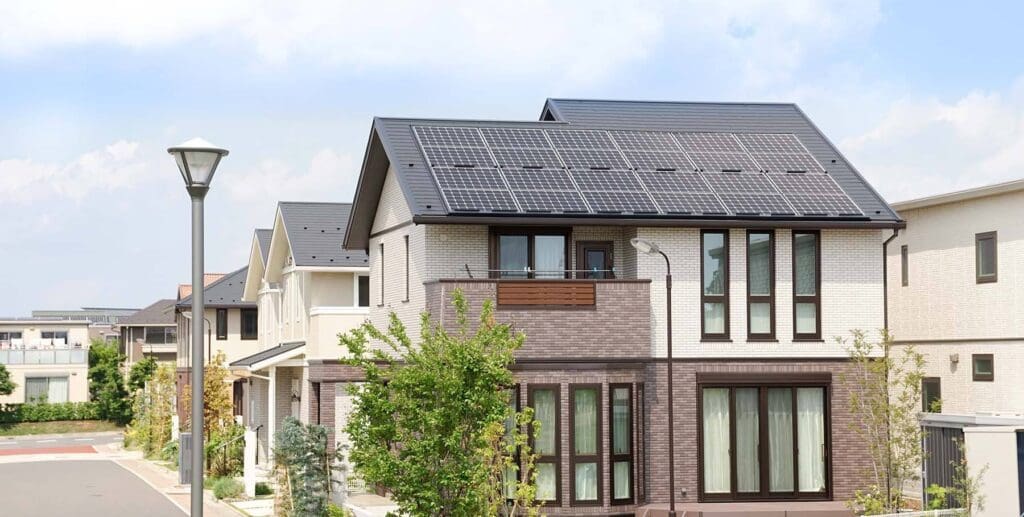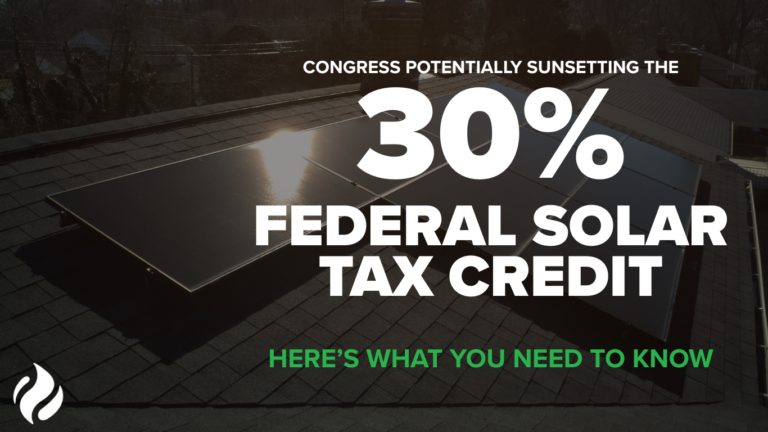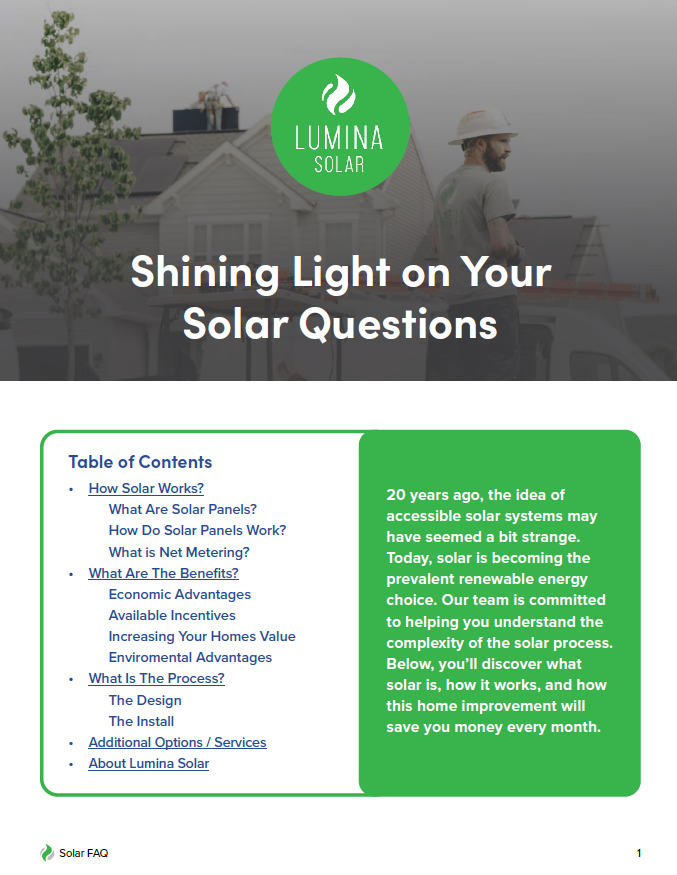There are many investment options for those who want to experience the benefits of solar energy. At Lumina, we offer a little something for everyone!
But when it comes to protecting your investment, the waters can get a little muddy.
Solar panels are built to last and typically function at optimum efficiency with no noticeable decline for as much as 25 years. Many panels even last well beyond that!
However, accidents happen, and it’s good to know where you stand in terms of the protection that you have.
Do you need to have your panels insured? What about warranties and manufacturer protection plans?
In this post, we’ll shed some light on the options you have available to you.
Homeowners Insurance
The majority of homeowners insurance providers count roof-mounted solar panels as a permanent fixture. This means that, in most cases, they are considered to be a part of the home. Permanent fixtures are typically covered with pre-existing insurance plans as they are without any change in the premium.
However, a select few providers do require households that want their panels insured to purchase a separate add-on. This doesn’t happen very often, but it is still important to double-check with your provider if you want to be certain that you have the coverage you think you do.
Ground-Mounted Solar Panels
Ground-mounted solar panels are more likely to require their own separate policy or add-on when compared to roof-mounted panels.
This is due to the fact that ground-mounted systems are technically not attached to the home, despite providing power to the residence. In many cases, they are not considered to be permanent fixtures – a technicality that allows providers to charge policy holders extra.
Are You Leasing Your Panels?
The responsibility of maintaining and insuring solar panels typically falls into the hands of the person or company that actually owns the equipment.
If you are leasing your panels, you likely do not need to worry about insuring them as you do not actually hold ownership.
Of course, the lease terms vary from company to company, and you will want to either speak to a representative about your responsibilities directly and/or thoroughly read your leasing agreement to know for certain what you are responsible for in regards to damages and repair costs.
If you’re working with a reputable company, the team members working on your installation should fill you in about all of this ahead of time.
Do I Need a Manufacturer’s Warranty If I’m Insured?
There are two primary types of warranties offered by solar power installation companies: the performance warranty and the product warranty.
On average, warranty terms last between 10-25 years.
Whether or not a warranty is worth investing in depends on the amount of coverage that you receive from your insurance company.
If your coverage is limited and full of stipulations, a warranty could very well be worth the investment.
For example: If your insurance policy only covers damage caused by weather and not for a decline in efficiency or equipment malfunction, you’ll want to invest in either a product warranty, performance warranty, or both to fill in the gaps in your coverage as needed.
Everyone’s situation will be different, so it’s important to have a thorough understanding of your policy.
In most cases, a combination of homeowners insurance and warranties offered by your installation company is the best way to ensure full coverage of your investment.
Have Questions?
Once you get the ball rolling on your installation, the information that you’ll need moving forward will typically be made available to you by those handling your installation, but you should never be afraid to ask questions and voice your concerns.
If you choose to work with Lumina, you’ll have the undivided attention of the team members assigned to your project to ensure that everything goes smoothly and that all of your questions are answered thoroughly.
It’s important to us that those trusting Lumina with their installation are getting the full scope of information that they need to make informed choices about their energy usage.
Have questions that you need answering right now?




